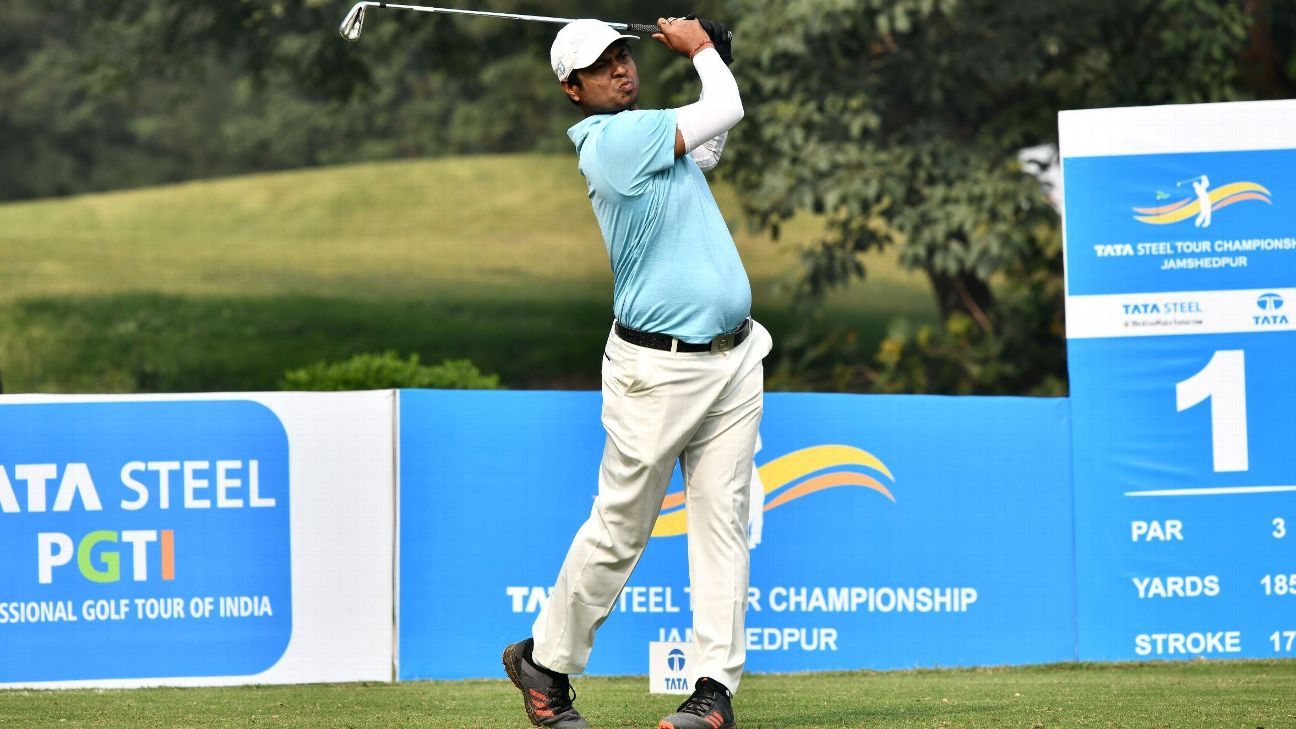Products You May Like
Dilip Tirkey, former Indian hockey captain and one of only four men in the sport with over 400 caps, laughs when asked if earning a partial card for the Professional Golf Tour of India (PGTI) for 2020 has made him put representing India in two sports at the Olympics as a realistic target.
“That’s something beyond my imagination at the moment, because there are so many better players ahead of me — [Gaganjeet] Bhullar, [SSP] Chawrasia, Shamim [Khan], [Udayan] Mane to name just a few,” says Tirkey, 42, who has also been a Member of Parliament and currently chairs the Odisha Hockey Promotion Council. “These are guys who have been on the circuit for so many years. I would only want to keep improving, and playing better in as many tournaments as possible. It would be great if that [playing for India at the Olympics] happens.”
Tirkey, considered one of the greatest defenders India has produced, represented the hockey team in three Olympics — 1996, 2000 and 2004 — and would have captained India in successive Games at Beijing 2008, but for India’s elimination in the qualifying final in Chile to Great Britain. He’s an Arjuna awardee, and also one of only nine men’s hockey players to have been given the Padma Shri this century, India’s fourth-highest civilian honour. After his retirement from international hockey in 2010, he has stayed connected with the sport through his active role in politics, but felt a void through not being involved in competitive sport.
“When you have been competing at a high level in sport, practised day in and day out, faced opposition in big battles, and then you retire, it causes a lot of restlessness,” says Tirkey, who first picked up golf on the recommendations of journalist friends and other well-wishers in 2017. “Since I have started golf, if I go to a local club or whether I am competing at the PGTI, I find that my mind goes back to that space. I prepare in a similar vein that I used to. I am warming up again, competing again.”
While Tirkey admits is that he may have devoted a lot of time to golf — he says he takes out five to six hours every day at the course — the absence of formal coaching tells on his game. He has taken informal tips from coaches at the Bhubaneswar Golf Course, and the Army’s 120 Infantry Battalion course in Bhubaneswar, and also spent some time interacting with coaches based in Delhi.
“Most people think golf isn’t a game centred around fitness. All you have to do is stand and swing, and then walk. But I found that golf requires so much of stability and focus. You need the right strength as well. You need fitness to stay balanced, to swing properly, and to be able to channel your focus,” Tirkey says.
“In hockey, you have to execute all your skills using just one stick, but here you have different clubs that you need to use judiciously. It’s interesting, and extremely challenging. I am enjoying my time with the sport.”
This year has been busy for Tirkey, having featured in the Qualifying School in Ahmedabad in January, and then competed at the Golconda Masters in Hyderabad, and the Players Championship in Bengaluru the following month. The results were modest — an 18-over par score in Bengaluru followed a 26-over in Hyderabad. He’s missing the Bengal Open this week due to personal reasons, but stresses that at this fledgling stage of his career, it is more about the experience and less about keeping score.
“Till the time you don’t get the exposure of playing against good players, you won’t be really good at match play. Further, I am used to the fairways and the greens at the courses where I play regularly, but professional courses are a completely different challenge,” says Tirkey. “Considering how I had played in the run-up to it, I played really poorly at the start of the Golconda event. Golf is like that — when you play under pressure, you are more likely to make mistakes. Playing Golconda or Bengaluru was all about getting exposure. I need to play with professionals to find out what are the areas I need to work on.”
Tirkey also wants to employ a full-time coach to sharpen his game. “Not having a regular coach is a big problem,” he says. “The ones I speak to informally can point out something wrong with my technique, but I need professional coaching to improve my game.”
“The swing and the overall technique must get better. I need to perform better at professional tournaments. The Olympics can wait — these are the targets at the moment.”


